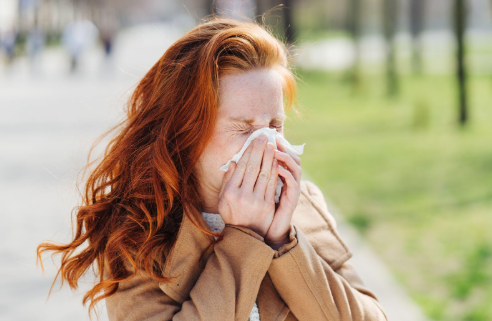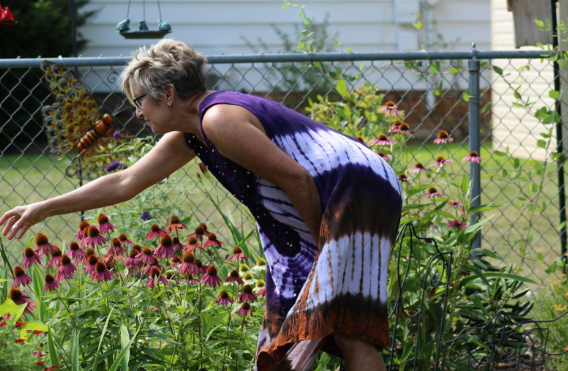Allergies and Aches: The Unexpected Connection Between Seasonal Allergies and Pain
Allergies and Aches: The Unexpected Connection Between Seasonal Allergies and Pain

Seasonal allergies are known for causing sneezing, congestion, and itchy eyes, but did you know they can also contribute to body aches and pain? Many people don’t realize that allergies and physical discomfort are closely linked, and if you’ve ever felt sore and sluggish during allergy season, you're not imagining it.
Luckily, knowing how allergies affect your body can help you manage symptoms more effectively, which lets you find relief from unexpected aches and pains.
The Root of Allergy-Related Pain
When your body encounters allergens like pollen, it triggers an immune response. Your immune system releases histamines and other chemicals to fight off what it perceives as an invader, leading to inflammation.
This inflammation can affect more than just your sinuses—it can spread throughout your body, leading to joint pain, muscle aches, and general discomfort. For those already dealing with conditions like arthritis or fibromyalgia, allergy season can make symptoms even worse.
Sinus Pressure and Headaches
One of the most common ways seasonal allergies cause pain is through sinus pressure. When allergens cause your nasal passages to swell, they can block proper drainage, leading to built-up pressure in your sinuses. This pressure can result in facial pain, headaches, and even pain that radiates into your neck and shoulders. If you’re prone to migraines, allergy-related sinus congestion can also act as a trigger and will make headaches more frequent or severe.
Allergies and Muscle Fatigue
Allergies don’t just leave you sniffling—they can make you feel downright exhausted. The body expends a lot of energy fighting off allergens, and the resulting inflammation can contribute to widespread muscle fatigue. You may feel like you’ve just finished an intense workout even though you haven’t changed your routine. When combined with poor sleep due to congestion and breathing difficulties, allergy-related muscle fatigue can become a lot to deal with.
The Link Between Allergies and Joint Pain
For those with chronic pain conditions, allergies can be an unwelcome aggravator. The inflammatory response caused by allergens can worsen joint pain and stiffness, making it harder to move comfortably. Histamines play a role in increasing pain sensitivity, meaning that during allergy season, minor aches may feel more intense than usual. If you wake up feeling unusually stiff and sore when pollen counts are high, allergies could be to blame.
How Poor Sleep from Allergies Increases Pain
A good night’s sleep lets your muscles recover and improves your overall well-being, but allergies can make restful sleep nearly impossible. Congestion, postnasal drip, and sinus pressure can leave you tossing and turning, leading to restless nights. Poor sleep contributes to increased pain sensitivity, making existing aches and pains feel even worse. Over time, chronic sleep disruptions can take a toll on your overall health, exacerbating inflammation and discomfort.
The Role of Stress in Allergy-Related Pain
Dealing with seasonal allergies can be frustrating, and that stress can actually make your pain worse. Stress triggers the release of cortisol, which, when imbalanced, can lead to heightened inflammation and discomfort. Additionally, chronic stress can cause muscle tension, leading to tightness in the neck, shoulders, and back. Finding ways to manage stress, such as gentle exercise, practicing deep breathing, or meditation, can help mitigate both allergy symptoms and pain levels.
Weather Changes and Allergy Pain
Seasonal allergies often coincide with shifts in temperature and humidity, which can further contribute to body aches. Cold or damp weather can stiffen muscles and joints, while sudden shifts in barometric pressure can exacerbate headaches and sinus pain. For those who already experience weather-related pain, allergy season can be especially tough. Staying warm, keeping hydrated, and using a humidifier when needed can help counteract these effects and provide some relief.
Managing Allergy-Related Aches and Pains
The good news is that managing your allergies effectively can help reduce related pain and discomfort. Reducing your exposure to allergens by keeping windows closed, using air purifiers, and showering after spending time outdoors can make a significant difference. Over-the-counter antihistamines and decongestants can also help alleviate inflammation and sinus pressure. Staying hydrated, having a calming sleep routine, and engaging in gentle stretching or chiropractic care are great ways to support your body during allergy season.
At
Arkansas Spine and Pain, we specialize in addressing pain from a variety of sources, including allergy-related inflammation.
Reach out to us today to explore treatment options that can help you breathe easier and move more comfortably all year long.



